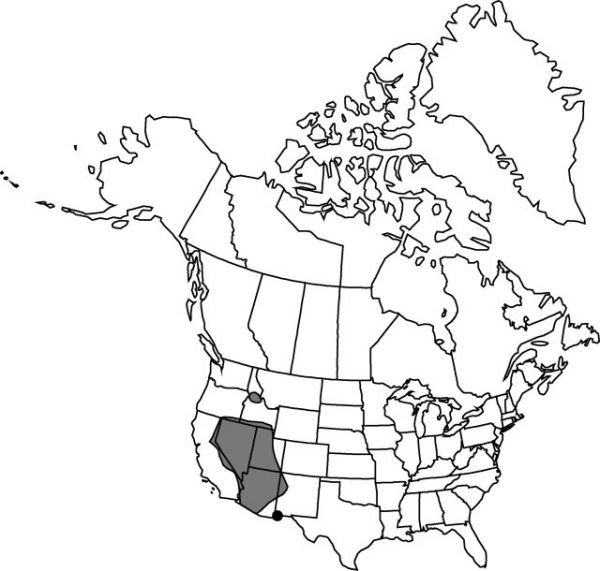Difference between revisions of "Allium bisceptrum"
Botany (Fortieth Parallel), 351, plate 37, figs. 1–3. 1871.
FNA>Volume Importer |
imported>Volume Importer |
||
| (One intermediate revision by the same user not shown) | |||
| Line 6: | Line 6: | ||
|place=351, plate 37, figs. 1–3. 1871 | |place=351, plate 37, figs. 1–3. 1871 | ||
|year=1871 | |year=1871 | ||
| + | }} | ||
| + | |special_status={{Treatment/ID/Special_status | ||
| + | |code=E | ||
| + | |label=Endemic | ||
}} | }} | ||
|basionyms= | |basionyms= | ||
| Line 57: | Line 61: | ||
|publication title=Botany (Fortieth Parallel), | |publication title=Botany (Fortieth Parallel), | ||
|publication year=1871 | |publication year=1871 | ||
| − | |special status= | + | |special status=Endemic |
| − | |source xml=https:// | + | |source xml=https://bitbucket.org/aafc-mbb/fna-data-curation/src/2e0870ddd59836b60bcf96646a41e87ea5a5943a/coarse_grained_fna_xml/V26/V26_469.xml |
|genus=Allium | |genus=Allium | ||
|species=Allium bisceptrum | |species=Allium bisceptrum | ||
Latest revision as of 21:15, 5 November 2020
Bulbs 1–7+, commonly producing either cluster of stalked, basal bulbels or filiform rhizomes to 1 dm, terminated by bulbels, rhizomes generally lost when specimens are collected, ovoid, 1–2 × 0.6–1.8 cm; outer coats enclosing 1 or more bulbs, light brown to gray, membranous, obscurely cellular-reticulate, cells rectangular, walls minutely sinuous, vertical, varying to irregular, all sinuous, without fibers; inner coats white to pink, cells obscure, quadrate. Leaves persistent, green at anthesis, 2–5, basally sheathing, sheaths not extending much above soil surface; blade solid, flat, broadly channeled, 8–30 cm × 1–13 mm, margins entire. Scape persistent, solitary or clustered 1–3, erect, solid, terete, 10–30(–40) cm × 1–5 mm. Umbel persistent, erect, loose, 15–40-flowered, globose, bulbils unknown; spathe bracts persistent, 2, 3–4-veined, ovate to lanceolate, ± equal, apex acuminate. Flowers stellate, 7–10 mm; tepals spreading, lilac to white, lanceolate, ± equal, becoming papery in fruit, not carinate, margins entire, apex acuminate, not involute; stamens included; anthers purple; pollen yellow; ovary conspicuously crested; processes 6, central, distinct, flattened, triangular, margins papillose-denticulate; style included, linear, ± equaling stamens; stigma capitate, unlobed; pedicel 10–20 mm, often becoming flexuous and deflexed in fruit. Seed coat shining; cells each with minute, central papilla. 2n = 14, 28.
Phenology: Flowering May–Jul.
Habitat: Meadows and aspen groves, less commonly on open slopes in mountains
Elevation: 1100–3000 m
Distribution

Ariz., Calif., Idaho, Nev., N.Mex., Oreg., Utah.
Discussion
Two varieties of Allium bisceptrum have been recognized. Where their ranges overlap (central Utah and central Nevada), the putative varieties cannot be distinguished confidently except by chromosome number.
Selected References
None.